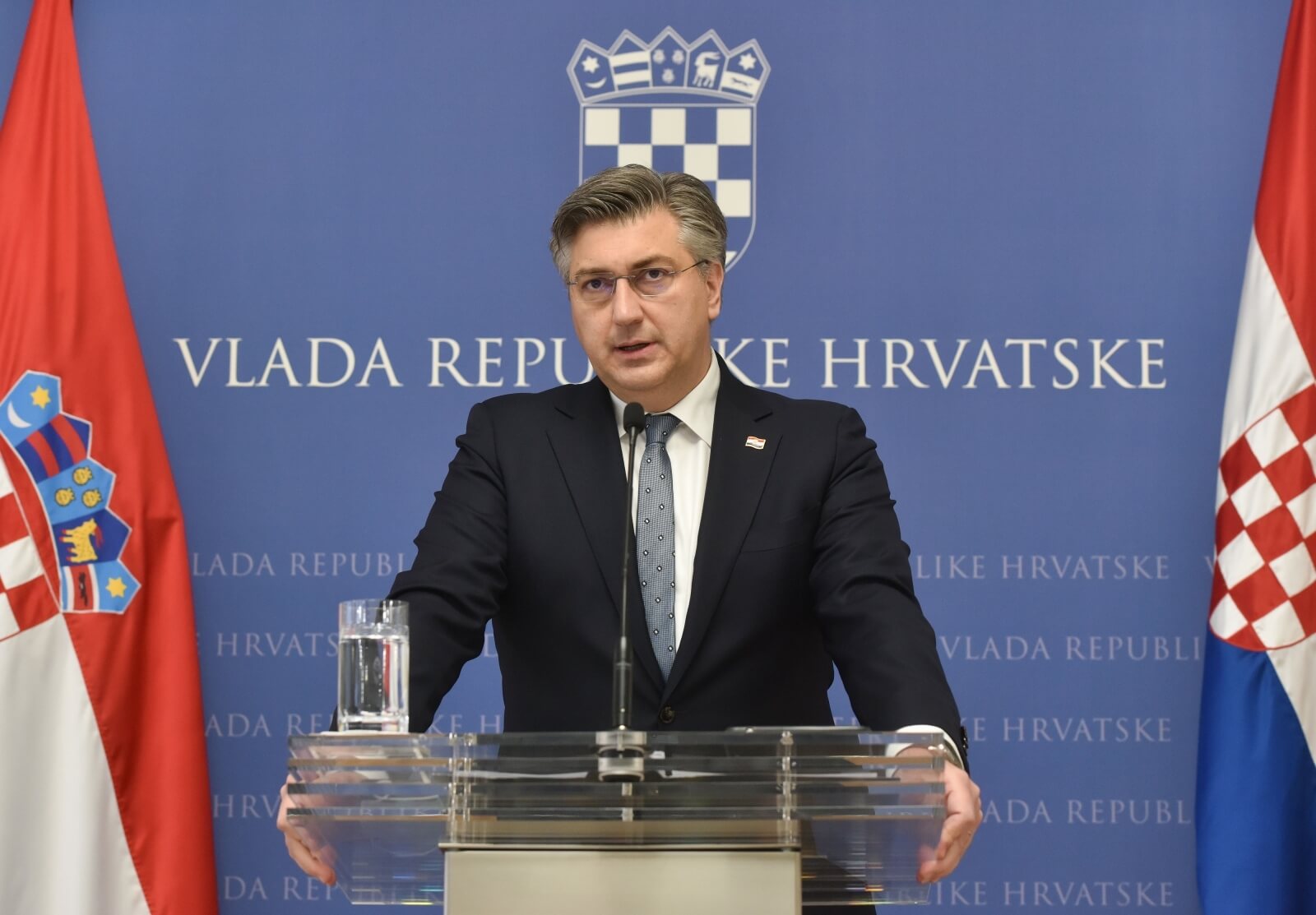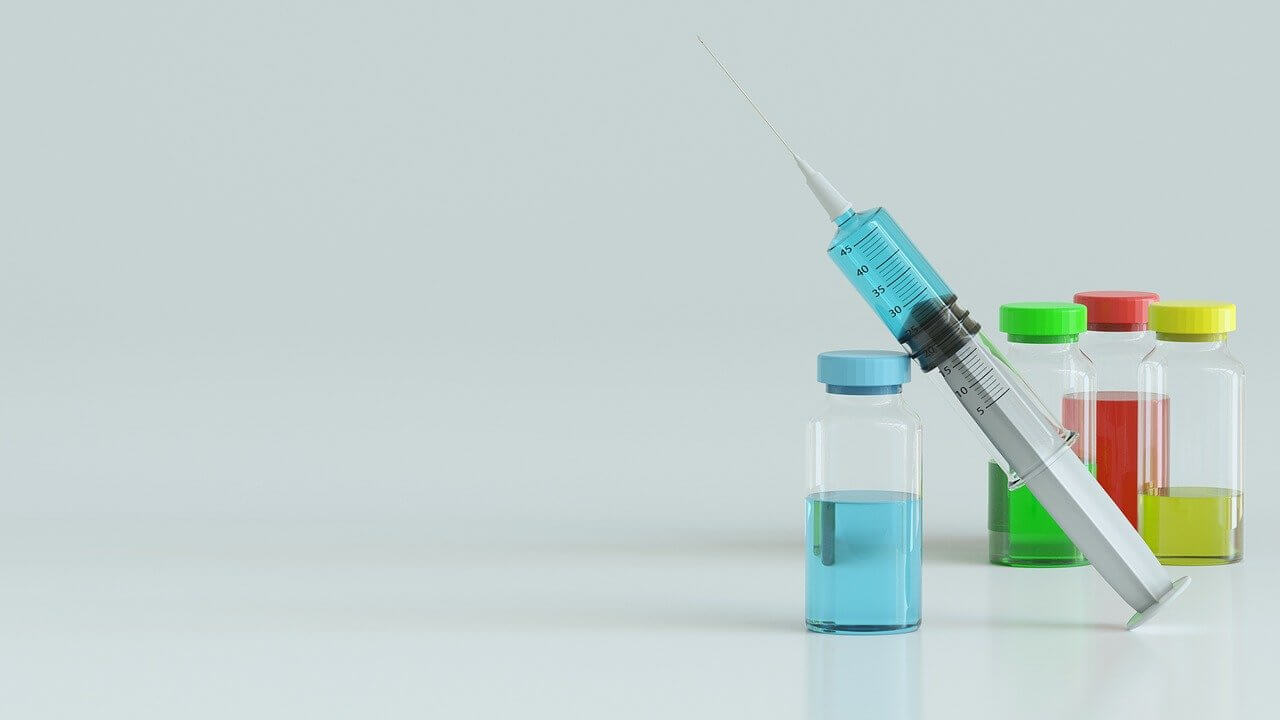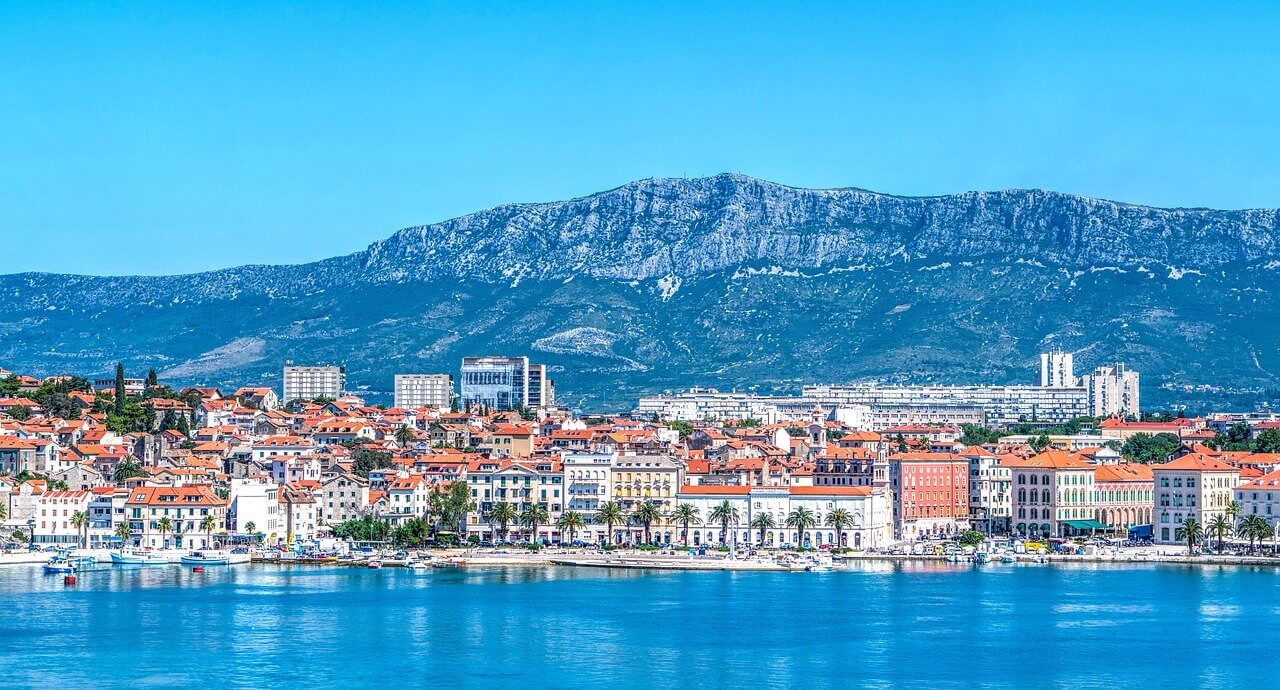New Coronavirus Restrictions to be in Force Until 15 April
ZAGREB, 31 March, 2021 - The national coronavirus crisis management team on Wednesday announced new epidemiological restrictions to be in force until 15 April, including a ban on indoor training, restrictions on the work of children playrooms and a temporary ban and restriction of cross-border travel.
The ban on indoor training does not apply to top competitions and athletes.
Certificates of vaccination with Russian, Chinese vaccines valid
Croatian border authorities will accept fast antigen tests as well as certificates about vaccination with the Russian and Chinese vaccines, and certificates proving their holders' recovery from COVID-19 and those certificates will be considered valid for 180 days, the team's head, Davor Božinović, said.
Border crossing has been regulated due to tourist visits, the exception being digital nomads and children.
"Considering restrictions in neighbouring countries, we do not expect a large number of arrivals," said Božinović.
He noted that the tighter restrictions were being introduced following a proposal to that effect by county COVID-19 response teams.
Apart from nationwide restrictions, the national team also made decisions on restrictions for Šibenik-Knin and Split-Dalmatia counties.
In Split-Dalmatia County, which has seen a big increase in new infections, the mandatory wearing of face masks at outdoor venues with an increased flow of people will be introduced, as will a ban on the sale of alcohol from 8pm to 6am. The work of cafes will be restricted until 8pm, and it will be possible to serve food and drinks only in the open. Foreign language schools will switch to online classes again.
Božinović said that restrictions could be additionally tightened since the epidemiological situation was not good.
Restrictions to be tightened if number of infections continues to grow
"We have a significant increase today and we cannot ignore the possibility of the scenario in neighbouring countries happening here as well. These restrictions will be in force for a few days but should statistics be worrying, we will introduce new measures," said Božinović.
The latest restrictions go into force on Thursday and will be in force until 15 April.
In the last 24 hours, 2,623 new coronavirus cases and 19 COVID-related deaths have been registered in Croatia, the national coronavirus response team said earlier in the day.
The number of active cases now stands at 11,306. Among them are 1,337 people receiving hospital treatment, of whom 144 are placed on ventilators.
Croatian Public Health Institute head Krunoslav Capak warned that today the number of new infections was 47% higher than last week.
Istria County has the lowest incidence, while Primorje-Gorski Kotar County has the highest. Croatia is currently 18th in the EU in terms of the number of deaths per one million inhabitants, while in terms of the 14-day incidence it is 12th.
Speaking about the start of the third phase of vaccination, Capak said that care would be taken of the order in which people had registered for vaccination at the cijepi.se online platform.
"All people older than 16 can be inoculated in the third phase, but a certain priority will be given to people in services in which they come into contact with a large number of people," he said, adding that the third phase could start in May.
He noted that cases of infection with coronavirus after vaccination had been reported. "We have about 20 such cases. Forty-four people in aged care homes got infected after receiving the first dose and 22 got infected after the second dose, but the symptoms were mild."
Commenting on an announcement by the Zagreb COVID-19 response team about the wearing of face masks outdoors, Capak said: "If you are outdoors and alone, there is no need to wear a mask."
"Outdoor mask wearing refers to places where there are a lot of people, in the farmers' market, on the waterfront," he said, noting that the recommendation to wear a mask outdoors had been in force so far for places where physical distancing was not possible.
For more about Covid-19 in Croatia, follow TCN's dedicated page.
Croatia Reports 2,623 New Coronavirus Cases, 19 Deaths
ZAGREB, 31 March, 2021 - In the last 24 hours, 2,623 new coronavirus cases and 19 COVID-related deaths have been registered in Croatia, the national coronavirus response team said on Wednesday.
The number of active cases now stands at 11,306. Among them are 1,337 people receiving hospital treatment, of whom 144 are placed on ventilators.
Since 25 February 2020, when the first case was confirmed in the country, 271,632 people have been registered as having contracted the novel virus, of whom 5,947 have died and 254,379 have recovered, including 920 in the last 24 hours.
Currently, 29,706 people are in self-isolation. A total of 1,549,854 people have been tested to date, including 10,622 in the last 24 hours.
By 30 March, 463,003 doses of vaccine have been administered and 374,399 people have been vaccinated, including 287,228 who have received one dose and 87,171 who have received two doses.
For more about COVID-19 in Croatia, follow TCN's dedicated page.
US Embassy Donates GeneXpert Machine to Zagreb's Infectious Diseases Hospital
ZAGREB, 30 March, 2021 - The US Embassy in Croatia has donated a medical device to the Fran Mihaljević Hospital for Infectious Diseases in Zagreb that can detect the coronavirus in less than 45 minutes, the hospital's director Alemka Markotić said on Tuesday.
Four samples can be placed in the GeneXpert machine at the same time. However, it is not used for mass testing, but is useful in quickly dealing with certain situations, Markotić said.
US Embassy official Victoria Taylor said that this is not about just a piece of equipment, but also about the partnership between Croatia and the United States.
We are happy that our small contribution can help the Fran Mihaljević Hospital and the healthcare system in time of need, Taylor said, commending all Croatian health workers for their tireless work during the pandemic.
Markotić said that most of the patients in the hospital's COVID ward were between 50 and 65 years old and had underlying conditions. She noted that the hospital was nearly filled to capacity.
Markotić said that for now there was no substantial number of young people infected with the British variant of the coronavirus in the hospital, but noted that this variant was proved to be spreading faster among young people because of "their greater nonchalance, mobility and socialising."
She warned that the number of new cases was growing and called on the citizens to avoid "risky situations".
Markotić expressed hope that patients would not be left without medicines, after wholesale drug suppliers warned last week that they might restrict drug deliveries because of HRK 6.5 billion debt owed by the hospitals.
Drug wholesaler Medika said today it had suspended drug deliveries to the hospitals.
Markotić said that her hospital had sufficient drug supplies for now. "We hope that we will not find ourselves in a situation where we, or rather our patients, will be left without medicines."
Prime Minister Andrej Plenković said earlier that Finance Minister Zdravko Marić and Health Minister Vili Beroš would meet with drug wholesalers to discuss the debt and that they would be paid a certain amount of money in the coming days.
For more about health in Croatia, follow TCN's dedicated page.
Croatia Logs 1,487 New Coronavirus Cases, 17 Deaths
ZAGREB, 30 March, 2021 - In the past 24 hours 1,487 new coronavirus cases and 17 COVID deaths have been registered in Croatia, the national COVID-19 response team said in a press release on Tuesday.
The number of active cases is 9,622, including 1,289 hospitalised patients, of whom 127 are on ventilators, while 27,940 people are self-isolating.
Croatia has registered 269,009 coronavirus cases to date, 5,928 COVID deaths and 253,459 recoveries, including 1,138 in the past 24 hours.
To date 1,539,232 people have been tested for the virus, including 9,064 in the past 24 hours, and 367,458 people have been vaccinated against COVID-19, with a total of 453,710 doses administered, including two to 86,252 people.
For more about COVID-19 in Croatia, follow TCN's dedicated page.
Decision on COVID Measures Valid Until 15 April to be Made on Thursday
ZAGREB, 29 March, 2021 - The head of the national COVID-19 response team said on Monday a decision would be made on Thursday on epidemiological measures that would be in force until 15 April.
The measures we are applying are serious and we can discuss their application, but we can't be satisfied with the epidemiological situation as the number of new infections is rising, Interior Minister Davor Božinović said at press conference.
"We will consider measures at national level and make a decision that will probably be in force until mid-April. We will follow the development of the epidemic. The measures can be changed even before 15 April, which will depend on how the coronavirus situation unfolds in the days ahead," he said.
Božinović also said that some local response teams "don't show sufficient enthusiasm" in enforcing COVID restrictions.
The director of the Croatian Institute of Public Health, Krunoslav Capak, said the week-on-week rise in new coronavirus cases was 47%. "The current incidence is 399.9 per 100,000 inhabitants."
The UK coronavirus variant has been detected in more than 80% of sequenced samples.
500,000 vaccine doses arriving in April
Asked what he would advise people who were going to Serbia to be vaccinated, Capak said the registration of vaccines at the European Medicines Agency provided a certain security as to a vaccine's efficacy and safety.
"I wouldn't advise people to be vaccinated with the Russian and Chinese vaccines until they are registered in the EU," he said, adding that there was no guarantee for vaccines used in non-EU countries.
"I'd advise everyone to wait their turn. During April we will receive 500,000 vaccine doses, this week 121,000."
Capak said more than 50% of the population would be vaccinated by summer, adding that the beginning of the vaccination of tourism workers was yet to be discussed.
Asked about criticisms from some counties that more vaccines would be distributed to tourist counties, Capak said account would be taken of a balanced distribution and that the average was 133.6 doses per 1,000 population.
Health Minister Vili Beroš said the epidemiological situation was not good and again called on citizens to adhere to the COVID measures.
For current coronavirus information specific to Croatia, including border and travel rules, as well as testing centres across the country, bookmark this page.
78% of Electronic Media Outlets in Croatia Adversely Affected by Pandemic
ZAGREB, 28 March 2021 - The Electronic Media Agency (AEM) has published the results of research indicating that the COVID-19 pandemic has had a negative impact on 78% of electronic media's overall business outlets in Croatia.
When asked how the pandemic affected their overall business in 2020, 27% of electronic media outlets said it had a very negative effect, and 51% reported a mostly negative effect. Nearly 19% said that the pandemic had neither a positive nor a negative effect.
On the other hand, nearly 3% of electronic media outlets reported a generally positive effect on their overall business, but no one said that the pandemic had a very positive effect.
Pandemic had the worst impact on television and radio
The pandemic had the worst overall impact on television and radio broadcasters -- over 90% said that the pandemic had a negative or very negative effect on their business.
The research has also shown that 70% of media outlets were affected by the pandemic primarily financially, as a result of which they generated less revenue in 2020 compared to 2019. A fifth had the same level of revenue, while 10% saw an increase in revenue.
According to the respondents, the pandemic did not negatively impact the quality of media content.
Slightly more than 45% of respondents said that the pandemic had neither a positive nor a negative effect on the quality of media content, and 37% said that the pandemic had a generally negative effect.
Again, television broadcasters were the ones that reported a generally negative effect on their content in the highest percentage, of almost 55%.
The research has also shown that the government measures to help the enterprise sector in the pandemic, which also covered electronic media outlets, were used by just over 35% of the respondents. Of those that did, 90% said they used the HRK 4,000 wage subsidy measure.
More than half of media outlets satisfied with institutions' coverage of pandemic
Over half of the respondents (52%) said they were generally satisfied or very satisfied with the way institutions informed the media of the pandemic.
The research was carried out in the last week of January, and all radio and television broadcasters and providers of electronic publications and other media services were invited to participate.
Those are non-profit producers of radio or audiovisual programs, media services providers via cable, satellite, and/or the internet, and on-demand media service providers. The AEM had 607 of them in its records on the day the research began, and 235 service providers participated in the survey.
To read more news from Croatia, follow TCN's dedicated page.
Domestic Violence On The Rise During Pandemic
ZAGREB, 28 March 2021 - The number of domestic violence crimes has increased by 39% during the coronavirus pandemic, which requires establishing confidential communication channels so that the victims would have confidence that something will be done about this problem, an online conference said earlier this week.
The coronavirus pandemic has exposed gender inequality in all its forms and has additionally exacerbated problems such as domestic violence or inequality on the labor market, the conference on gender equality at the time of the coronavirus crisis, organized by the European Parliament Office, was told.
Gender Equality Ombudsman Višnja Ljubičić said domestic violence had increased across the EU, including Croatia, during the coronavirus pandemic. Citing official data, she said that the number of these crimes had risen by as much as 39% compared with 2019.
"The epidemiological measures, although necessary, have exacerbated social problems, which will have far-reaching consequences for the equality of women and men," Ljubičić said.
The Dean of the Academy of Dramatic Arts in Zagreb, Franka Perković Gamulin, spoke of serious allegations of sexual harassment at the Academy, saying that "concrete, clear and confidential communication channels" needed to be established so that the victims would have confidence that something would be done and that they would not be stigmatized.
Perković Gamulin said that three female students had reported sexual assaults against them. Many former female students had also come forward saying they had been victims of sexual harassment. She said that one teacher had been suspended, and an employment contract had not been renewed for an external lecturer.
Psychiatrist Maja Šeparović Lisak stressed the need for systematic advocacy of zero tolerance to violence.
To read more news from Croatia, follow TCN's dedicated page.
Nine Percent of Zagreb's Children and Youth Have Increased Anxiety and Depression
ZAGREB, 28 March (Hina) - The results of a study on the mental health of children and young people during COVID-19 and the earthquake in Zagreb, which included 22,020 children and young people, have shown that 9% of them had significantly increased anxiety and/or depression, and 15% had symptoms of post-traumatic stress.
The study, presented earlier this week, included 22,020 children and young people in Zagreb's primary and secondary schools whose parents completed questionnaires via an online application. Data were obtained on almost every fourth child in Zagreb, with equal representation by gender and age.
The sample is considered representative. It was said that the experiences of the children and young people included in the study largely reflect the experiences of Zagreb's children and young people in general.
Presenting the results, the head of the Child and Youth Protection Centre, Gordana Buljan Flander, said that within the framework of experiences belonging to the circle of post-traumatic stress reactions, it was seen that half of the children and young people at least once experienced difficulty concentrating, anxiety when remembering a stressful event, emotional sensitivity, intrusive images of traumatic events and avoidance of unpleasant memories and feelings.
Looking at anxiety and depression, it is visible that the concerns of children and young people in this period are significantly pronounced, Buljan Flander warned. Seventy-four percent of them faced a fear of failure last year, and 60% anxiety in social situations. Feelings of sadness and emptiness, concerns for family members' safety, and fear that they have to stay at home alone were recorded in nearly half of children and young people.
In terms of changes, no difference was found between children and young people in primary and secondary schools. Still, girls were at greater risk because they show elevated levels of anxiety and/or depression and post-traumatic stress more often than boys.
Buljan Flander stressed that the study results could "serve as a guide" to what children needed and what additional support they required.
"The results clearly indicate that we need to strengthen the resilience of our children, that we need to work on mechanisms for dealing with stressful, traumatic situations and crises," she said.
To read more news from Croatia, follow TCN's dedicated page.
Highlights of the Week: 5 Big Events in Croatia from March 22-28, 2021
March 28, 2021 – From Croatian destinations drawing more attention to Covid business support plans in April, here are TCN's five highlights of the week, recapping the big events in Croatia from March 22 to 28, 2021.
Looking back on the past week, after a year of downfall, it is clear that Croatia is recovering in a very positive way. The pandemic has put the world on hold for a while; despite the uncertain times, Croatia is moving forward. Businesses around the country will continue to receive government support in the form of financial aid throughout April, there are plans for mass vaccination in Zagreb after Easter, and another boost for Croatian tourism is in the works - and that is just part of it.
From Monday to Sunday, we list five events featured on the front pages of Croatia's news portals.
PM Andrej Plenkovic Confirms Covid Support for Businesses in April
Following a recently held cabinet meeting, Croatian PM Andrej Plenkovic confirmed that the government will continue to provide support for companies that qualify during April. Additionally, the government will reimburse electricity bills for all citizens affected by the Petrinja earthquake to aid. The HAC toll fee collections along the Zagreb-Sisak motorway will also be reimbursed.

Andrej Plenković. Photo: Davorin Visnjic/PIXSELL
Mass Zagreb Citizen Vaccination to Commence After Easter
Despite the recent vaccine delivery dynamics Croatia has been through, Dr. Zvonimir Sostar, the director of Zagreb's Dr. Andrija Stampar Institute, confirmed a large vaccination will be organized in the Capital. The aim is to vaccinate around 6,000 citizens a day, six days a week which approximately equals 36,000 vaccinated people.
 Pixabay
Pixabay
Just over 100,000 people have been vaccinated in Zagreb in two different phases. Due to vaccine shipment delivery issues, Croatia hasn't received the Moderna vaccine for the third week in a row, affecting the plans. But the country is hopeful the situation will improve following the Easter holidays.
Plaja-Beach Finder: Croatian App to Digitalise All of Country's Beaches
To help tourists answer the famous "Where is the beach?" question, a Croatian mobile app made by a Split resident will make everyone's life a little bit easier. Research has shown that this is the most common question asked by tourists in all areas of Croatia, from Dubrovnik all the way to Pula. After working in tourism for 15 years, Dejan Gepo saw the need to create an online beach guide to suit everyone's needs and minimize paper waste with useless and outdated maps.

Pixabay
Each beach has a detailed description written by the Tourist Board, including the location, content on offer, and images. There is a navigation option that enables tourists to find the beach easily, and there is an option where you can virtually view every beach via 360 views. Users can provide comments and rankings for each beach depending on experience, enabling tourists to find their perfect beach match.
The Plaja-Beach Finder mobile app has been available for download since January the 24th this year and has been downloaded more than a thousand times so far.
EuroNight Train: Slovaks, Austrians Introduce Line to Split, Tickets On Sale
Despite the continued uncertainty that Coronavirus presents and the reduction of air traffic, Austrians and Slovaks will introduce a brand new night train line in the summer of 2021. The route, starting from Bratislava, passes through Vienna and Graz with the Dalmatian City of Split as the final stop.

Pixabay, Split
The EuroNight train plans to commence on June 18th, 2021, to run twice a week until the end of the summer season, mid-September 2021. Tickets can already be purchased from Vienna to Split, 29.90 euros for seats and 69.90 for beds.
The night trains allow guests to travel in a more sustainable way and aids in reducing climate change.
2022 World Cup Qualifiers: Croatia Defeats Cyprus 1:0 in Rijeka
After losing to Slovenia last week, Croatia came back strong and won against Cyrus as an outstanding highlight of the week. Croatia and Cyrus played last night in Rijeka for the second round of the 2022 World Cup qualifiers Group H.
Croatia's coach, Zlatko Dalić switched up the lineup for the game, going for a 4-3-3 formation. Croatia was powerful from the start of the game with Mario Pašalić scoring from a header for 1:0, in the 39th minute. Luka Modrić also recorded his 135th cap for the national team, making him the most-capped player in Croatia history!

Photo: Igor Kralj/PIXSELL
The loss to Slovenia complicated their road to the World Cup, as only the group winner qualifies directly for Qatar 2022. Croatia will play Malta on Tuesday in Rijeka at 20:45.
To read more about sport in Croatia, follow TCN's dedicated page.
To follow all news from Croatia, subscribe to our newsletter.
Croatia Logs 1,790 New Coronavirus Infections, 18 Deaths
ZAGREB, 27 March 2021 - Over the past 24 hours, Croatia has registered 1,790 new cases of coronavirus infection and 18 related deaths, the national COVID-19 crisis management team said on Saturday.
The number of active cases stands at 9,790. There are 1,148 COVID-19 patients in hospitals, 121 of whom are on ventilators.
Since 25 February 2020, when Croatia registered its first case of the infection, a total of 265,901 people have been infected and 5,872 of them have died.
A total of 250,239 people have recovered, including 1,034 in the last 24 hours.
There are currently 29,984 people in self-isolation.
To date, 1,519,731 people have been tested, 8,291 of whom over the past 24 hours.
To date, 341,656 people have been vaccinated, of whom 260,126 have received one shot while 81,530 have received both. So far 423,186 vaccine doses have been administered.
To read more about COVID-19 in Croatia, follow TCN's dedicated page.


